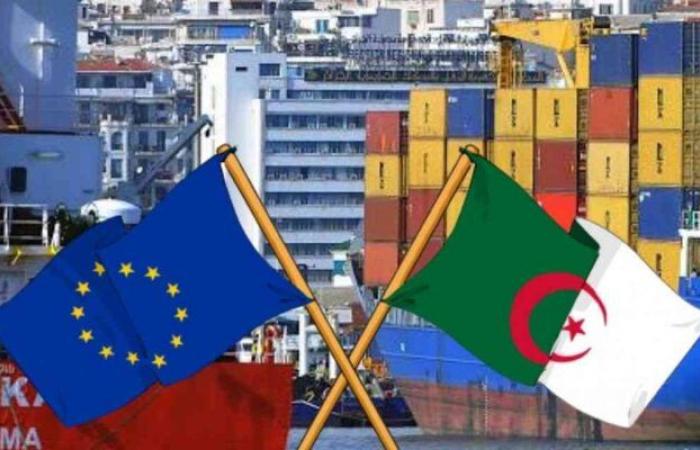Since the Association Agreement between Algeria and the European Union (EU) came into force in 2005, trade between the two parties has largely benefited the EU. This trend was confirmed by Ahmed Attaf, Minister of Foreign Affairs and National Community Abroad, in a written response to the Member of Parliament for Algerians Living Abroad, Abdelouahab Yagoubi. The latter had questioned the minister on Algerian-European trade relations, particularly following the announcement last June of potential sanctions by the European Commission against Algeria.
The minister highlighted a chronic non-hydrocarbon trade deficit since the application of the Agreement in 2005. He also specified that the total volume of trade between Algeria and the EU had reached nearly 1,000 billion dollars between 2005 and 2022. However, European investments did not exceed 13 billion dollars, a large part of which was concentrated in the hydrocarbon sector, while profit transfers reached 12 billion dollars over the same period.
In his response, published on the MP’s Facebook page, Ahmed Attaf clarified that “the European Commission did not impose sanctions on Algeria, as may have been misinterpreted, but rather opened a trade dispute.” He explained that this dispute stems from certain measures taken by Algeria since 2021 as part of the rationalization of imports and the promotion of local inputs, particularly in the automotive industry.
Although these measures are in line with the terms of the Association Agreement, the Minister raised questions about the substance of the European approach. According to him, the statistics put forward by the European Commission, which estimate the impact of the Algerian measures, do not accurately reflect reality. Moreover, he noted that trade under this Agreement increased by more than 20% in 2023 compared to 2022, and by 15% in the first quarter of 2024 compared to the same period of the previous year.
The Minister also referred to an assessment of the Association Agreement, which revealed significant imbalances. The agreement, in its current form, fails to adapt to economic developments in Algeria. It maintains an import structure favourable to the EU, to the detriment of investment dynamics and the development of a productive economy in Algeria.
This imbalance, deemed contrary to the initial objective of the agreement, led President Abdelmadjid Tebboune to order a thorough review of the partnership, with an approach based on win-win cooperation, aimed at protecting the interests of the national producer and encouraging the creation of jobs and a local industrial fabric.
What about the revision of the agreement?
Regarding recent revisions of the Agreement, Ahmed Attaf stressed that it has not yet undergone a comprehensive review. Only partial adjustments have taken place, including the customs dismantling plan in 2010, as well as a joint evaluation in 2015, at the request of Algeria. In 2020, a new evaluation of the Preferential Trade Agreements was also carried out.
As for the potential consequences of the trade dispute with the EU, the minister clarified that the Association Agreement does not provide for any immediate financial sanctions. However, he mentioned that a mutually agreed resolution is usually found through consultations, and that it is unlikely that bilateral arbitration will be necessary.
This context reinforces the need to rethink the Association Agreement between Algeria and the European Union, in order to make it fairer and more adapted to the current economic realities of the country.






